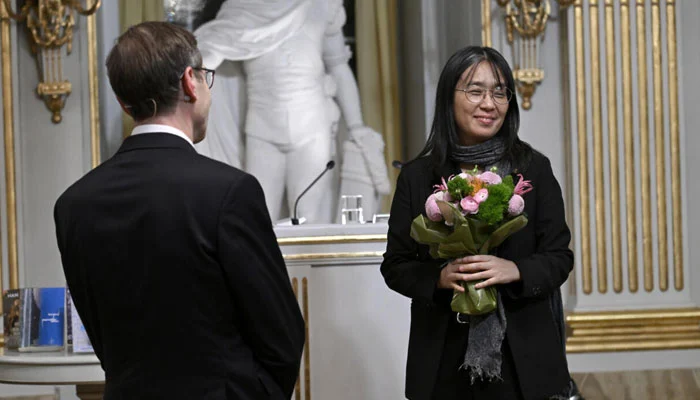Select Language:
Experts anticipate that the Nobel Prize in Literature announcement on Thursday will likely be awarded to a Western male author this year. This expectation comes after South Korea’s Han Kang made history last year as the first Asian woman to receive the honor.
Winning the prize again by a woman this year would break a long-standing pattern: it’s never happened twice consecutively since the award’s inception in 1901. Women remain significantly underrepresented among laureates, accounting for just 18 of 121 winners.
Literary critics in Stockholm suggest that the committee will probably select a male author from the Western world. Possible candidates include Gerald Murnane from Australia, Mircea Cărtărescu from Romania, Laszlo Krasznahorkai and Peter Nadas from Hungary, as well as Christian Kracht from Switzerland, known for his postmodernist works.
Betting sites currently favor Murnane and Krasznahorkai, alongside Amitav Ghosh from India, whose name gained popularity just days before the announcement.
The Swedish Academy, which awards the Nobel, insists that factors such as gender, nationality, or language do not influence their decision-making. However, critics note that a review of past laureates reveals a tendency for the committee to shift focus based on previous winners—highlighting a European winner, then perhaps a woman, followed by a man to balance gender representation.
Since the Me Too movement scandal in 2018, every other laureate has been a woman, suggesting efforts to address gender disparities.
Bjorn Wiman, culture editor at Dagens Nyheter, believes this year’s winner will be a man from the Anglo-Saxon, German, or French literary regions. Christian Kracht, a German-language author famous for his narratives on pop culture and consumerism, is a favorite among literary circles. His prominence was evident at the Gothenburg Book Fair, where many members of the Swedish Academy attended his discussion, reminiscent of the event when Elfriede Jelinek was honored in 2004.
Another notable contender is Gerald Murnane from Australia, born in 1939 in Melbourne. His works draw heavily from personal experiences. His novel “The Plains,” published in 1982, explores Australian landowners and has been described by The New Yorker as a “bizarre masterpiece” that feels more like a dream than a conventional story. Literary critic Josefin de Gregorio jokes about his reclusiveness, noting that Murnane has never left Australia and lives in the countryside, making him difficult to reach. She advocates for his recognition to help more people discover his extraordinary writing.
Australian Aboriginal author Alexis Wright has also been mentioned as a potential recipient.
Other names frequently discussed include Jamaica Kincaid from Antigua-American, Canada’s Anne Carson, Chile’s Raul Zurita, and Argentina’s Cesar Aira. Although South American winners are rare—Vargas Llosa was the last in 2010—the region might be overdue for acknowledgment, suggests Kalmteg.
Potential candidates from Mexico include Cristina Rivera Garza and Fernanda Melchor. Predicting the winner remains challenging, as the committee keeps its shortlist secret for 50 years and often chooses writers who are relatively unknown to the broader public. Historically, the prize has favored artists considered both elite and innovative.
Unlike in previous years when selections tended to favor older men, recent winners like Han Kang show a shift toward honoring internationally respected, younger authors.
The 2025 Nobel laureate will receive a prize of $1.2 million, with the announcement scheduled for Thursday at 1:00 pm GMT.







